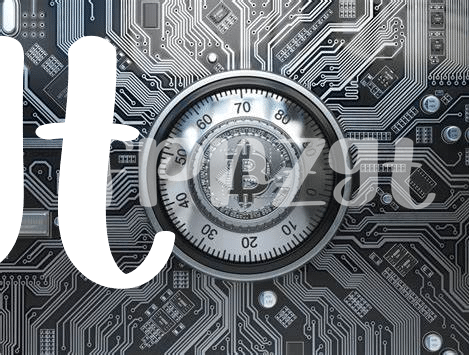🕵️ Understanding the Basics of Bitcoin and Security Risks

At the heart of the digital age, Bitcoin emerges as a beacon of financial transformation, captivating businesses and individuals alike with its promise of decentralized transactions. But as we unwrap this digital currency, it becomes clear that navigating its waters is not without risks. Imagine Bitcoin as a bustling digital marketplace. Just as a crowded bazaar attracts pickpockets, the Bitcoin ecosystem draws in cyber threats. These span from simple scams tricking individuals out of their digital wealth to complex hacking attempts on digital wallets and transactions. The very technology that makes Bitcoin revolutionary, the blockchain, also introduces unique security challenges. It’s akin to learning a new language; understanding its intricacies is the first step towards safeguarding oneself.
| Security Risk | Description |
|---|---|
| Phishing Attacks | Scammers trick individuals into revealing sensitive information like private keys or wallet passwords. |
| Wallet Thefts | Unauthorized access to digital wallets allowing thieves to transfer Bitcoin to their accounts. |
| Transaction Manipulation | Exploiting vulnerabilities in the Bitcoin transaction process to alter or redirect transfers. |
| Exchange Hacks | Breaches in cryptocurrency exchange platforms leading to massive financial losses. |
By laying a sturdy foundation of knowledge, we can begin to construct robust defenses against these digital marauders. Understanding the landscape is vital; as we familiarize ourselves with common threats, we equip ourselves with the tools to recognize and counteract potential hazards.
💻 the Surge of Cyber Threats in Bitcoin Adoption
As more businesses jump on the Bitcoin wagon, eager to tap into its growth and potential, the shadows of cyberspace grow longer and teeming with threats. Imagine, every day, there’s a new type of cyber villain out there, craftier than the last, eyeing this digital goldmine. They unleash clever schemes like phishing attacks, where they trick employees into giving away access to the company’s digital wallet, or ransomware, which locks you out of your precious data until you pay up in Bitcoin. It’s a bit like those old Wild West tales, where the gold rush attracted both pioneers and bandits. But here’s where our story takes a hopeful turn. Knowledge and preparation can be your sheriff and deputy in this new frontier. Being in the know about these risks is step one, adopting smart, secure practices to protect your business’s virtual treasure chest is step two. It’s a thrilling yet daunting adventure, securing your slice of the Bitcoin pie. And speaking of securing digital assets, it’s worth exploring other related vulnerabilities, like those found with NFTs. If you’re curious, dive deeper into the fascinating and dual-edged world of Bitcoin and cyber threats through valuable insights found here.
🛡️ Protective Measures Against Bitcoin-related Cyber Attacks

When we talk about keeping our digital wallets safe from the bad guys, there’s a lot to consider. Think of Bitcoin sort of like your online wallet. You wouldn’t leave your physical wallet lying around for anyone to grab, right? Similarly, with Bitcoin, it’s essential to make sure it’s tucked safely away. One vital step is using strong, unique passwords for your Bitcoin accounts and wallets. It’s like locking your wallet in a safe. Also, double-checking who you’re sending Bitcoin to is crucial. Just like you wouldn’t hand over cash without being sure who’s receiving it, you should verify the receiver’s address. These might seem like simple steps, but they are your first defense against digital pickpockets.
As for the tech side, keeping your software updated is like having the latest locks on your doors. Hackers find it harder to break in when you’re using the latest security features. Another smart move is using multi-factor authentication (MFA). This is like having a guard check who comes in and out, adding an extra layer of security. For businesses, conducting regular security audits can help you spot any weaknesses—think of it as doing a regular check-up to ensure everything’s in top shape. By staying vigilant and employing these practices, you’re putting up a formidable defense against potential cyber threats.
🏢 Integrating Bitcoin: a Corporate Security Checklist

When companies think about welcoming Bitcoin into their operations, it’s like preparing for a VIP guest. This isn’t just about rolling out the red carpet. It’s more about ensuring that every nook and cranny of the digital house is safe and sound. Imagine this as setting up a high-tech security system but for your company’s digital assets. The checklist starts with the basics like strong passwords and multi-factor authentication, moving up to advanced encryption techniques for storing sensitive information. Then, there’s the matter of educating the team. It’s crucial everyone knows the dos and don’ts to keep the company’s digital wallets away from prying eyes.
However, understanding the technicalities can sometimes feel like reading ancient hieroglyphs. That’s where resources like bitcoin and nfts security concerns can be a lifesaver, providing easy-to-understand yet thorough insights into securing digital assets against modern-day cyber threats. Further bolstering security involves regular audits, staying updated with the latest security software, and having a rapid response plan in case of security breaches. Just like a knight preparing for battle, being equipped with the right armor (knowledge and tools) can make all the difference.
🚨 Real-world Incidents: Lessons Learned from Breaches
Learning from real-life situations can give us a clear picture of what goes wrong and how we can avoid similar pitfalls. Take, for instance, a famous online service that accepted Bitcoin and then experienced a massive security breach. Hackers managed to sneak through their digital defenses, accessing thousands of users’ private information. This unfortunate event highlighted the critical need for robust security measures and the reality that being unprepared can lead to severe consequences. It wasn’t just about the immediate loss; the company’s reputation took a massive hit, making customers think twice before using their service again.
The lessons drawn from such breaches are invaluable for any business venturing into the world of Bitcoin. The key takeaway? Never underestimate the cunning of cybercriminals. They’re always on the lookout for the slightest weakness to exploit. Companies have learned the hard way that investing in top-notch security from the get-go is non-negotiable. They now understand the importance of continuous monitoring, employee education on the latest phishing scams, and maintaining an up-to-date defense against ever-evolving threats. Here’s a quick look at some of the most common attack vectors and the percentage of businesses affected by each according to a recent study:
| Attack Vector | Percentage of Businesses Affected |
|---|---|
| Phishing/Social Engineering | 30% |
| Malware | 25% |
| Ransomware | 20% |
| Weak Passwords | 15% |
| Outdated Software | 10% |
By studying these breaches, businesses can bolster their defenses, making the journey into Bitcoin adoption a less daunting one.
📈 Future-proofing Your Business: Staying Ahead of Security Challenges

In the ever-evolving world of technology, keeping your business safe from cyber threats is akin to preparing for a storm that changes direction without warning. Imagine your business as a ship navigating through digital waters, where threats such as hackers are the unpredictable storms. To stay ahead, it’s crucial to be proactive rather than reactive; this means continuously updating your security measures to guard against new types of attacks that are constantly emerging. Think of this as reinforcing your ship with the strongest materials and having the best navigation tools at your disposal. Additionally, educating your crew—or in this case, your employees—about potential threats and safe online practices is just as important as the physical defenses. By fostering a culture of security awareness, you create an environment where safety becomes second nature.
Crafting a resilient defense system against cyber threats involves more than just investing in the latest security technology; it’s about foreseeing potential security challenges and adapting accordingly. For example, understanding the complexities and risks associated with digital currencies is vital, as highlighted by the connection between bitcoin as a store of value security concerns. This knowledge not only prepares your business to fend off attacks but also positions it to safely embrace innovations such as Bitcoin, ensuring that you’re not left behind in the digital age. Keeping abreast of real-world incidents and learning from them can also offer invaluable insights into how to fortify your defenses. Remember, in the realm of digital security, knowledge and preparation are your best allies in ensuring your business not only survives but thrives in the face of cyber threats.
